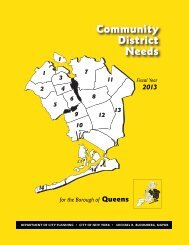Palm Oil Buyers Scorecard
WWF_Palm_Oil_Scorecard_2016
WWF_Palm_Oil_Scorecard_2016
You also want an ePaper? Increase the reach of your titles
YUMPU automatically turns print PDFs into web optimized ePapers that Google loves.
Some brands facing these challenges have shied away from using book and claim due<br />
to concerns about its credibility (see appendix 1 on supply chain choices). Others,<br />
like Nestlé, have now stopped buying book and claim certificates, preferring to rely<br />
on their own sourcing guidelines. Other brands are seeking to invest in smallholder<br />
schemes rather than book and claim certificates. But some companies seem to be using<br />
this argument to do nothing at all.<br />
While we welcome any and all of these efforts by brands to change the industry, we<br />
appreciate that not all brands can undertake them. Buying CSPO has a key role to play<br />
in demonstrating to palm oil growers that there is a demand for them to improve their<br />
practices and get their operations independently verified as meeting better practices.<br />
Buying CSPO is an option open to all brands, big or small, that use CSPO and/or the<br />
most complex derivatives and fractions. Other actions must also be undertaken along<br />
with buying CSPO, but they must not replace this fundamental step.<br />
In particular WWF is very disappointed to see that the following companies fell at least<br />
50 per cent short of their own 2015 targets or did not report to us with enough evidence<br />
of whether they had met them or not:<br />
Dansk Supermarked, DuPont, Ginsters, Kroger, Lion, Nestlé, P&G, Remia,<br />
Smucker’s and Superunie.<br />
Moving targets:<br />
which companies<br />
switched target<br />
dates and when?<br />
Some brands pre-emptively dropped 2015 as a target and replaced it with 2020. Among<br />
those companies that had set themselves a target of 2015 in 2012 the following had, by<br />
2014, postponed their target year:<br />
Aviko, Avon, Co-op Clean, Kao, Lion, Saraya, Super U, Taiyo and Yushi.<br />
Unilever, one of the first brands to set 2015 as a target to meet all its use with<br />
physical CSPO, was also one of the first to move its target year to 2020. However, it<br />
then purchased enough book and claim credits to cover all the palm oil it was unable<br />
to source from physical CSPO supplies. There is no excuse for other companies not to<br />
follow this example.<br />
So if the industry<br />
didn’t achieve<br />
100 per cent<br />
by 2015, what<br />
happens next?<br />
The 137 companies scored use more than 6.1 million tonnes of palm oil between them,<br />
representing about 10 per cent of global use. While there is likely to be some double<br />
counting between manufacturers and retailers, they provide a good indication of how<br />
the demand for CSPO is progressing.<br />
In 2015, 4.7 million tonnes – or 77 per cent of the assessed companies’ palm oil use<br />
– was already covered by CSPO. If their use of palm oil stays constant and, more<br />
importantly, if they take their new targets seriously, then by 2020 we can expect to see<br />
at least 6 million tonnes of CSPO being used by these companies.<br />
33 WWF PALM OIL BUYERS SCORECARD 2016




